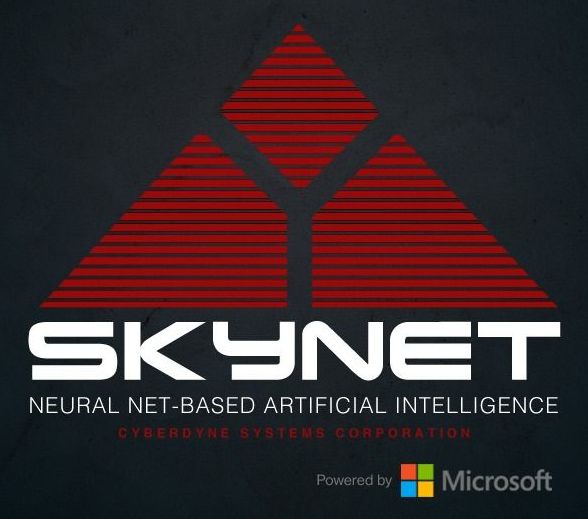The government is setting up high-tech R&D facilities for India Inc to design and test products.



On Wednesday, at the United Nations Convention on Certain Conventional Weapons in Geneva, a panel of government experts debated policy options regarding lethal autonomous weapons.
Dutch NGO Pax created a report that surveyed major players from the sector on their view of lethal autonomous weapons. They categorised companies based on 3 criteria: whether they were developing technology that’s potentially relevant to deadly AI, working on related military products, and if they had committed to abstaining from contributing in the future.
By these criteria, Microsoft scores rather highly in the birthplace of Skynet rankings. Microsoft has invested extensively in developing artificial intelligence products, has very close relationships with the US military, and Satya Nadella has committed to providing the military with their very best technology. While Microsoft has fallen short of explicitly developing AI for military purposes, we do know that they have developed a version of the HoloLens for the military that is specifically designed to increase the lethality of soldiers in the field.

Hmmmm.
ATTENTION owners of truly massive, human-built tunnels and subterranean complexes: The US military’s secretive research agency urgently needs your underground lair for some undisclosed experiments.
DARPA tweeted on Wednesday that within the next 48 hours it must find a “human-made underground environment spanning several city blocks with complex layout & multiple stories, including atriums, tunnels & stairwells. Spaces that are currently closed off from pedestrians or can be temporarily used for testing are of interest.”
I’m imagining something along the lines of the underground world used by the tethered in the movie Us, though it also sounds like abandoned underground malls, bunkers, cities, and as-to-yet undiscovered sites of lost civilizations may qualify, so long as the space is found by 5 PM Friday (Eastern Time; the government’s hours are very rigid.)

Editor’s note: This article is part of a supporting engagement with the Electromagnetic Defense Task Force’s efforts in order to inform readers on the vulnerabilities within the electromagnetic spectrum. For the printer friendly version click here.
In spring 2019, a group of nearly 200 military, government, academic, and private industry experts in various areas of electromagnetic defense gathered for the second Electromagnetic Defense Task Force (EDTF) summit. During this time a full analytical and technical review was initiated on the recently released report titled “High-Altitude Electromagnetic Pulse and the Bulk Power System: Potential Impacts and Mitigation Strategies” authored by the Electric Power Research Institute (EPRI). This essay outlines the strengths and weaknesses of the report and aims to generate further discussion among industry, policy makers, military, and academia to ensure the nation is adequately prepared for any potential electromagnetic event.

In normal vision, light falls on the retinas inside the eyes, and is immediately transduced into electrochemical signals before being uploaded to the brain through the optic nerves. So you do not see light itself, but the brain’s interpretation of electrochemical signals in the visual parts of the brain. It follows that, if your eyes do not work, but your brain is stimulated just so, your visual neurons will activate (and you will be able to see) just the same as if your eyes were in perfect condition.
Sounds easy, but can we do that? Building on decades of research in visual neuroscience, my lab, in collaboration with Susana Martinez-Conde’s, has now conducted some of the studies that validate this idea, completing some of the most important preliminary steps towards a new kind of visual prosthetic.
Francis Collins, the Director of the National Institutes of Health, has just posted a blog that highlights our approach. He took notice of our work when we first presented it at this year’s meeting for the Principal Investigators of the BRAIN Initiative—the NIH led government funding initiative meant to spur research along on topics like brain implants. The BRAIN Initiative funds several agencies including the NIH, including the National Science Foundation, who kindly funded the grant driving our research thus far.


Stem cell biologist Hiromitsu Nakauchi has been waiting for this moment for more than a decade.
After years of planning, the persistent researcher has at last received approval from a government willing to pursue one of the most controversial scientific studies there is: human-animal embryo experiments.
While many countries around the world have restricted, defunded or outright banned these ethically-fraught practices, Japan has now officially lifted the lid on this proverbial Pandora’s box. Earlier this year, the country made it legal to not only transplant hybrid embryos into surrogate animals, but also to bring them to term.

The Moon is a hot destination right now — especially for NASA, which wants to send people back to the lunar surface, but also for the private space industry. The most ambitious private lunar exploits are still many years off, but already, three companies claim they’ll be putting small robotic landers on the Moon in the next two years, amping up a small space race.
So far, no private entity has landed something successfully on the Moon. Only three government superpowers — the United States, China, and Russia — have ever been able to gently touch down vehicles on the lunar surface, and the Indian government may become the fourth in September. An Israeli nonprofit, SpaceIL, attempted to land the first private spacecraft on the Moon in April, but an early engine shutdown caused the vehicle to crash into the lunar surface instead. That means the door is still open for one of these three companies to make the first private lunar landing.

But to generate the kind of long-term data set necessary for breakthroughs in precision medicine — which uses genomic, physiological and other data to tailor treatments to individuals — All of Us must retain these participants, ideally throughout their lives. That’s where genetic counselling comes in.
A firm hired by the National Institutes of Health will work with participants in a research programme that plans to sequence one million genomes.

Yes he really said this, yet he also said he wanted to use the Amazon for logging and agriculture. Personally I believe people who want to use the Amazon for commercial use are the biggest beneficiaries from such destruction, but I’m no expert.
The Brazilian president, Jair Bolsonaro, has accused environmental groups of setting fires in the Amazon as he tries to deflect growing international criticism of his failure to protect the world’s biggest rainforest.
A surge of fires in several Amazonian states this month followed reports that farmers were feeling emboldened to clear land for crop fields and cattle ranches because the new Brazilian government was keen to open up the region to economic activity.
Brazil has had more than 72,000 fire outbreaks so far this year, an 84% increase on the same period in 2018, according to the country’s National Institute for Space Research. More than half of them were in the Amazon.